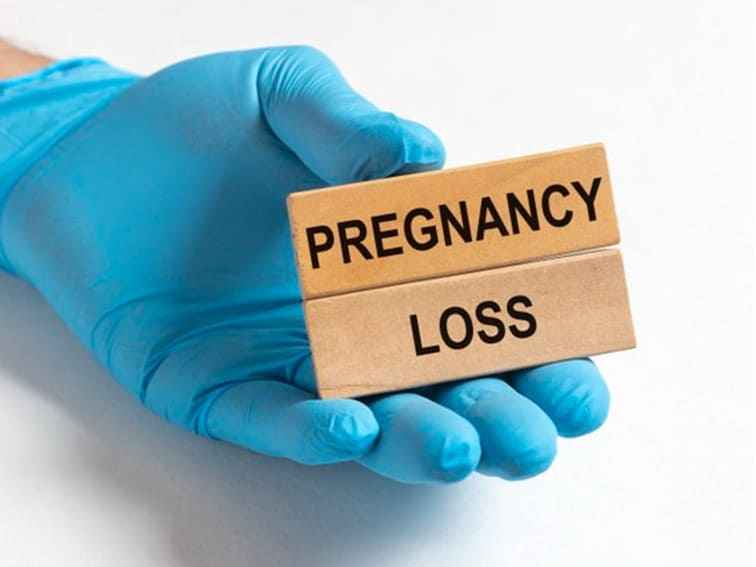Pregnancy loss (or) miscarriage is the loss of pregnancy before it reaches viability. Nearly one-fourth of all women experience at least one miscarriage at some point during their lifetime. This is one of the most common and complicated problems associated with pregnancy and loss of pregnancy.
Around 15% of clinically recognized pregnancies may result in miscarriages. This means spontaneous pregnancy loss is common. It can be attributed to several factors.
Recurrent Pregnancy Loss (RPL)
RPL – Recurrent Pregnancy Loss, Recurrent Miscarriage, or Habitual Abortion is defined as 3 consecutive pregnancy losses prior to 20 weeks of gestation.
Recurrent miscarriage (RM) or Recurrent pregnancy loss (RPL) affects nearly about 2 to 6% of women during their reproductive age. There could be many causes and contributing factors to consider during the evaluation of recurrent pregnancy loss.
What are the causes of Recurrent Pregnancy Loss?
Diabetes: Diabetes is the major endocrine cause of recurrent pregnancy loss or miscarriages in women with a family history of diabetes and endocrine disorders. It can also increase the risk of fetal malformations. Poorly controlled diabetes is often associated with spontaneous miscarriages.
Read more about Diabetes in Pregnancy
Polycystic ovarian syndrome (PCOS)
PCOS can not only make it difficult to get pregnant but also make it difficult to have a viable pregnancy. Studies have found evidence of PCOS in at least 40% of women with RPL. Early-pregnancy miscarriages are common in women with PCOS as women with PCOS are three times more likely to suffer from recurrent pregnancy loss than others. There are many factors that could increase the risk of miscarriage associated with PCOS including obesity, increased androgens (testosterone) levels, insulin resistance, and high levels of luteinizing hormones (LH).
Read more: About PCOS – How It Affects Pregnancy
Thyroid Disease
Both hypothyroidism, hyperthyroidism, and autoimmune thyroid disorders have been associated with infertility issues and miscarriages.
Read more: Thyroid Disorders in Pregnancy
Luteal Phase Defect
The follicular phase is the period when the ovaries prepare to release an egg. The luteal phase takes place after ovulation. It may last for up to 11 to 17 days. During this period, a woman’s body prepares for a possible pregnancy. Therefore, the luteal phase is important for pregnancy. Some women may have a short luteal phase (8 days or less) – which is known as luteal phase defect (LPD). In this condition, getting pregnant may become difficult.
LPD can be caused due to stress, aging, obesity, thyroid disorders, PCOS, and endometriosis.
Anatomic causes
Anatomical abnormalities in the uterus can cause pregnancy loss or recurrent miscarriages, malpresentation, preterm labour, and delivery. The factors that affect the vasculature of the endometrium may include uterine fibroids (intramural and submucosal fibroids), uterine anomalies, uterine polyps, and intrauterine adhesions.
Genetic Causes
An abnormality of the embryo due to aneuploid or abnormal karyotype is the most common cause of spontaneous miscarriages. Nearly about 50% of all first-trimester spontaneous abortions (SABs) are cytogenetically abnormal. Women should opt testing for these conditions if they have 3 or more consecutive pregnancy losses or one or more fetal deaths or when they have at least one preterm baby due to severe placental insufficiency or severe preeclampsia. To diagnose this condition anticardiolipin antibodies and lupus anticoagulant testing are done.
Antiphospholipid Syndrome (APS)
This is an autoimmune disorder associated with thrombosis, pregnancy complications, fetal growth restriction, preeclampsia, autoimmune thrombocytopenia, and fetal loss (pregnancy loss). This is the most frequently acquired risk factor for thrombophilia.
Thrombotic factors
Both acquired and inherited thrombophilia may increase the risk of pregnancy losses regardless of gestational age. The inheritable thrombophilias linked to Recurrent pregnancy loss result from antithrombin mutations, prothrombin promoter mutations, protein S deficiencies, protein C deficiency, factor V Leiden mutations (activated protein C resistance), and methylene tetrahydrofolate reductase (MTHFR) mutations.
Environmental factors
Environmental exposure to chemicals such as solvents, ionizing radiations, medications, toxins, cigarette smoke, and alcohol have been linked to RPL. Though there are several environmental factors, smoking and alcohol gained special attention. As far as dietary factors are concerned, caffeine has gained the focus of studies. Excessive alcohol consumption has been associated with higher rates of spontaneous pregnancy loss. Even moderate alcohol intake can also increase the risk. Even smoking and caffeine intake have also been associated with RPL risk.
Infectious Diseases
Herpes simplex virus, rubella, Toxoplasma gondii, Listeria monocytogenes, cytomegalovirus, and coxsackieviruses could play a possible role in spontaneous pregnancy loss, but their role in recurrent pregnancy loss is less significant. However, some suspected infections which could play a possible role in RPL may include HSV, L monocytogenes, Chlamydia trachomatis, ureaplasma, and mycoplasma. In some cases, chronic infection in immunocompromised women has been shown to increase the risk.
How is Recurrent Pregnancy Loss Diagnosed?
The diagnosis of anatomic causes (related to uterine defects) of pregnancy can be made by ultrasound, hysteroscopy, vaginal ultrasonography, and Hysterosalpingography (HSG), hysterosonograms.
If endometriosis is suspected then diagnostic laparoscopy may be recommended.
Read more: Endometriosis
Endocrine disorders that mandate further investigations include PCOS, diabetes, pituitary, and thyroid glands disorders.
For the evaluation of endocrine disorders (hypothyroidism and hyperthyroidism), TSH levels are measured. The other testing may include antithyroid antibody testing, serum prolactin testing, ovarian reserve testing, insulin resistance testing (PCOS), chromosome studies, blood clotting studies, and very rarely luteal phase endometrial biopsies if the cause is suspected to be a luteal phase defect. Other hormonal tests may include progesterone, luteinizing hormone, and follicle-stimulating hormone tests.
Diagnosis of APS
For the women with clinical presentation or features of APS – three antiphospholipid antibodies tests are recommended. The tests include anticardiolipin (aCL) antibody (IgG and IgM), lupus anticoagulant, and anti-beta-2 glycoprotein I antibody.
Bottom Line
Genetic screening, lifestyle choices, medications, and surgical interventions are available for improving the chances of viable pregnancy in up to 90% of cases of recurrent pregnancy loss despite having 3 miscarriages. Even with certain conditions such as endometriosis, uterine fibroids, PCOS, luteal phase defects, and other anatomical and endocrine disorders medical and surgical treatments can lower the risk for future complications and recurrent pregnancy loss. In the absence of a definitive cause also, there are several options and bright prospects of improving and overcoming RPL.
I believe you may still have some questions and doubts – which could only be resolved through a personal meeting, discussion and counseling. If you have any such concerns regarding recurrent pregnancy loss, infertility issues or miscarriages, fix an appointment with me for a one-to-one discussion.





